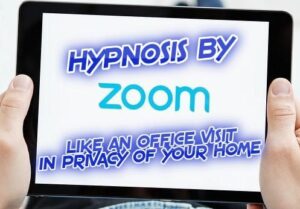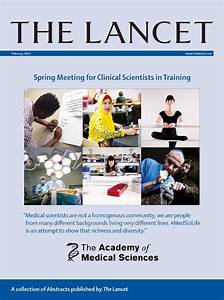Happy 2021 and Life After Covid
Life After Covd-19:
A Happier New Year 2021
(my article that appeared in the January 2021 issue
of Rhode Island Natural Awakenings)
Never has the term “Happy New Year” meant more to most of us. The pandemic has made everything more difficult, from shopping for groceries to childcare and education. Some have suffered more than others. Some have lost a family member, a job, or business. But all of us have felt the effects of lockdowns, social distancing, and uncertainty.
It will be especially good to celebrate the arrival of 2021 because now there is light at the end of the tunnel – and it is not, thankfully, an on-coming train. It an effective vaccine that promises to bring our nation back to “normal”.
But will a vaccine shot in the arm really be all it takes to get us back to normal?
I suspect it may not, and many agree. Remember that for 9 months we have individually and collectively been under heightened stress.
· There have been close to 300,000 deaths due to covid-19 and those have directly touched 70% of Americans through family and social relationships
· Many Americans have experienced intense financial hardship during the pandemic
· Over 100,000 small businesses have closed
· Millions of people have lost jobs and unemployment is hovering around 7%.
· We have not been able to travel freely, take vacations, visit with loved ones, hold our grandchildren or grandparents, go to the theater, movies, or concerts, have or attend parties, go out for cocktails with friends or out for an evening dancing.
· Gyms and other exercise facilities have often been closed and people missed out on the stress relief of regular exercise
· Isolation and other stressors have increased domestic abuse. A study showed admissions for domestic abuse injuries doubled over prior years at a Boston hospital – and the people who show up at hospitals are just the tip of the iceberg because we know many more do not seek emergency care but stay in the shadows
· Studies show that child abuse and neglect is up significantly (although likely under-reported because many children are not in school where potential abuse is often flagged)
And, fundamentally, we have all lived with the stressor of simply not knowing what is coming next and the inability of being able to confidently plan for the future. The stress of these circumstances as well as social isolation has been a slow-burn of constant trauma. On top of the virus, we have all suffered through the most acrimonious election campaign in recent history. Whether you watch MSNBC and CNN or Fox News, you may have been exposing yourself to heightened hysteria turning friend against friendand even breaking families apart. As a result of all of these influences, many of us – whether aware of it or not – have been experiencing a low level depression and heightened anxiety for many months now. The psychologists would call it situational depression. That means it is not a “pathology” but a normal response to real problems. But feeling “blue” and anxious is unpleasant whether due to a chemical imbalance or constant emotional stress.
The symptoms of depression include a loss of interest in activities that used to give us pleasure, a tendency to isolate, and a feeling of hopelessness and fatigue.
And what about those of us with a tendency toward clinical depression in the first place?
According to some studies, people reporting “suicidal ideation during the past 30 days” increased by 275% during the past 9 months up to an astounding 11% of people. Alcohol consumption increased at an alarming pace during the pandemic. According to Nielson, purchases of alcoholic beverages increased nationally by 54% in March 2020 over the prior year.
Many things may soon start to get better with the virus as more and more people are vaccinated; but how fast will we get better as individuals and as a society will have to be seen.
It may be nice to think none of this really affects you personally – that you or I are somehow immune. But like it or not we are all human and trauma effects everyone emotionally to one degree or another.
A NATION EXPERIENCING POST TRAUMATIC STRESS?
Post-traumatic stress effects people in a variety of ways, none of them good:
· Relationship problems
· A tendency to isolate (just what we need after lockdowns, right?)
· Substance abuse
· Other destructive habits used as coping mechanisms: gambling, sex problems, overeating (the 10 “pandemic pounds” many have gained in 2020)
· Health issues such a cardiovascular problems, even lowered immunity to illness
So, how do we recover?
Recovery begins by the realization that something is wrong and needs to be fixed. Many of us dropped good, healthy habits during the pandemic. We stopped going to the gym because it was closed. We ate too much out of boredom and didn’t mind the weight gain since no one saw us much anyway and many of us could just about live in sweatpants. Others went further and picked up destructive habits: drinking, smoking, eating more than is good for us or binge-watching Netflix or too much online shopping. The World Health Organization suggested online gaming with old and new friends as an alternative to in-person social interactions during the pandemic: time spent worldwide on video games increased dramatically. Now psychologists are warning of an increase in online game addiction leading to further isolation after the pandemic.
Breaking these unhealthy habits will take focused attention. It is no easy thing for most people to quit smoking or cut out a binge drinking problem, reduce recreational snacking or switch back from online gaming to real world socializing.
It will take effort and intentionality to reestablish healthy habits: getting back to the gym regularly, re-connecting with friends, scheduling nights out, eating healthy.
On top of all of this, 2021 promises to bring its own stressors as the societal divisions that have been magnified over the last four years play out and we deal with financial insecurity as the country works to recover from the shutdowns.
To compound the problem, if you are feeling depressed the last thing you may want to do is to go outside your comfort zone. Ironically it feels comfortable to stay stuck when you feel stuck. It is what you have become used to. Imagine yourself in sweatpants having another slice of pizza with yet another beer. Or maybe it is seeing what it on NEFLIX when before the pandemic you would have been going out with friends. Or perhaps you find yourself checking your Facebook account after work instead of rushing off to the gym. These may seem like extreme cases or they may not. But ask yourself how your pandemic lifestyle is different from the way you are used to living.
Please understand that genuine depression and true post-traumatic stress disorder require proper medical treatment. If your low mood persists, consider talking to your primary care doctor or finding a counselor to help you through the rough times. Medication may be beneficial at least over the short-term. And certain psychotherapeutic techniques such as cognitive behavioral therapy have been shown to help people recover from PTSD and depression. There should be no shame in getting a little help when you need it.
The good news? The pandemic should soon be drawing to a close with a vaccine. More good news is that people are resilient and there is a lot of help around. Support groups and qualified professionals abound in our state.
Even more good news is that 2020 is over. Eventually, we will be able take off our masks, breathe a sigh of relief, and begin to build back our lives.
YOU CAN START MAKING 2021 A GREAT YEAR NOW WITH THE GRATITUDE ATTITUDE HABIT
One of the easiest ways to build a positive attitude is so simple it is easy to overlook. Start the habit of contemplating what is good in your life right now. Research shows that keeping a gratitude journal for 30 days can produce a measurable decrease in depression and increase in happiness. Begin by writing at least three things you are grateful for today. Make the practice a habit. This need not be more than a five minute ccommitment. But it is a habit that can change your life and maybe make 2021 one of
the best years in your life. To get started, begin by asking yourself one of the questions below.
· What simple pleasures are you grateful for that you may take for granted (cup of coffee, warm shower, walk outside)?
· What is something you are looking forward to doing when the pandemic is over?
· What happy memory can you call to mind?
· What people in your life (or who have been in your life) are you especially grateful for?
· What trip or special place are you glad you had a chance to visit?
· What about your body or health can you be grateful for?
· What in nature, maybe right outside your window, can you appreciate with gratitude?
· What accomplishment in your life are you especially proud of?
· What possessions that make your life better (a toaster, a television, a vehicle) can you feel a moment of gratitude to have for your comfort or pleasure?
· What makes you feel safe and where do you feel safest?
· Is there an artist, author, actor or musician whose work you are grateful for?
John Koenig is a Board Certified Hypnotist and Coach who has helped Rhode Islanders deal with life stress and overcome personal challenges since 1998, He sees clients at his office in the Warwick Medical Building as well as over ZOOM. John’s website is possibilities.nu. You can email him at john.koenig.hypnotist@live.com
There’s Light at the End of The Tunnel: Now what’s next post-pandemic?
A Two Minute Thanksgiving Day Message: November 25, 2020
Online Hypnosis Coaching as Effective as Office Visit
 HYPNOSIS COACHING IS NOT PSYCHOTHERAPY, BUT THIS STUDY HAS IMPLICATIONS FOR ITS EFFECTIVENESS OVER THE INTERNET AND IS WORTH A LOOK BY ANYONE CONSIDERING ONLINE COACHING WHICH DOES HAVE SIMILARITIES TO CBT.
HYPNOSIS COACHING IS NOT PSYCHOTHERAPY, BUT THIS STUDY HAS IMPLICATIONS FOR ITS EFFECTIVENESS OVER THE INTERNET AND IS WORTH A LOOK BY ANYONE CONSIDERING ONLINE COACHING WHICH DOES HAVE SIMILARITIES TO CBT.
https://www.thelancet.com/journals/eclinm/article/PIIS2589-5370(20)30186-3/fulltext
ZOOMnosis Hypnosis Coaching for the New Normal
John Hartland Ego Strengthening Script
This script is probably not what you think. By Ego Strengthening Psychologist John Hartland meant improving our ability to cope effectively in the world. He tested and tweaked this script for many years. Some have called it The Magic Script.
I have recorded it here faithfully with a few added bells and whistles for your use to supplement our work together or for your own personal development. Listen at roughly the same time each day for a week to ten days and let me know if you don’t notice a change in your attitude and effectiveness.
And click below if you are interested in the history and science behind this remarkable hypnosis intervention:
http://unsworks.unsw.edu.au/fapi/datastream/unsworks:47916/bin6806ff58-621f-465e-88c6-c355f9181a7f?view=true
- « Previous Page
- 1
- 2
- 3
- 4
- …
- 8
- Next Page »
